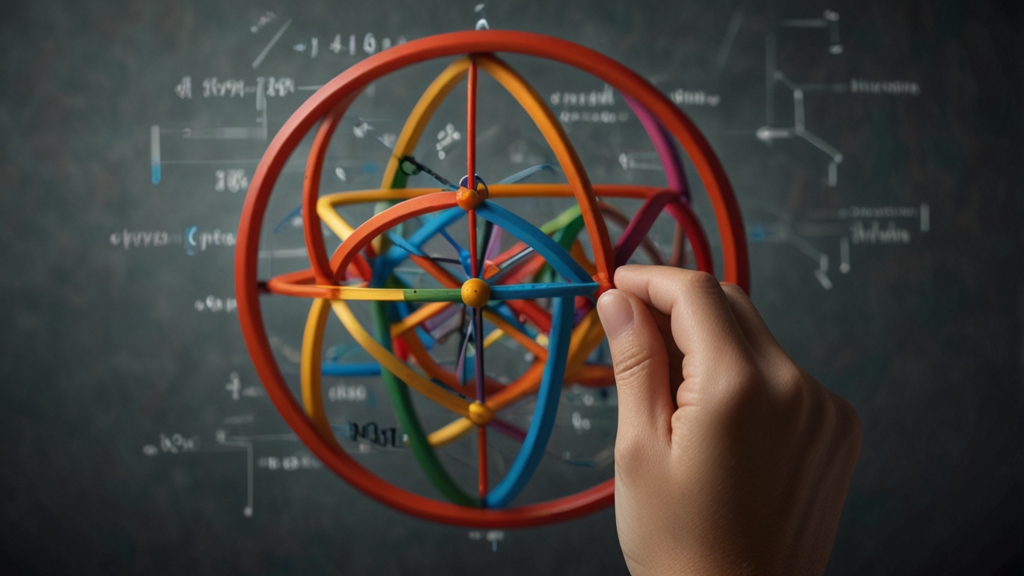Introduction
Metaphysics, often described as the branch of philosophy that deals with the fundamental nature of reality and existence, has long captivated the minds of thinkers, scholars, and curious souls. It seeks to answer questions that lie beyond the material world, delving into concepts such as being, time, space, and causality. But in an age dominated by scientific progress, can metaphysics still hold the key to decoding the universe's secrets?
The Origin and Scope of Metaphysics
The term "metaphysics" originates from the Greek words "meta" (meaning "beyond" or "after") and "physika" (meaning "physics"). Aristotle's works on the subject gave it this nomenclature, symbolizing inquiries that come after or go beyond the physical world. Metaphysics is subdivided into several branches, including ontology (the study of being and existence), cosmology (the study of the origin and structure of the universe), and epistemology (the study of knowledge and belief).
Metaphysics Versus Empirical Science
Empirical science relies on observation, experimentation, and evidence to build knowledge about the universe. Physicists and cosmologists use sophisticated instruments and mathematics to describe the properties of matter, energy, space, and time. But can these scientific methods answer metaphysical questions? Not entirely. While science can tell us how the universe operates, it often does not address the "why" behind its fundamental laws.
"Science is a way of thinking much more than it is a body of knowledge." — Carl Sagan
Metaphysics, on the other hand, ventures into the realm of ultimate causes and meanings. It explores why there is something rather than nothing, the nature of consciousness, and the existence of free will. While science deals with empirical facts, metaphysics handles the interpretative framework that surrounds these facts.
Modern Relevance of Metaphysics
In modern times, the relationship between metaphysics and science is often seen as complementary. Theoretical physicists like Albert Einstein and Werner Heisenberg, who transformed our understanding of space, time, and matter, engaged deeply with metaphysical questions. Einstein’s theory of relativity and Heisenberg’s uncertainty principle both contain metaphysical implications that challenge our intuitions about reality.
"The most incomprehensible thing about the universe is that it is comprehensible." — Albert Einstein
The rise of quantum mechanics, in particular, has intensified metaphysical debates. Quantum phenomena defy classical logic, suggesting particles can exist in multiple states at once and entangle instantaneously over vast distances. Such findings provoke profound metaphysical questions about the nature of reality and observation.
Criticisms and Limitations
Despite its profound questions, metaphysics has its critics. Logical positivists and some analytic philosophers argue that metaphysical propositions are neither verifiable nor falsifiable, rendering them meaningless. They maintain that only empirical science can provide legitimate knowledge about the universe.
Additionally, metaphysics can sometimes lead to speculative endeavors devoid of empirical grounding. While it poses essential questions, answering them definitively often eludes even the most rigorous thinkers.
The Interplay of Metaphysics and Science
Despite these criticisms, many believe that metaphysics and science share a symbiotic relationship. Scientists often rely on metaphysical assumptions to build theories. For example, the notion that the universe is governed by consistent laws is a metaphysical proposition essential for scientific inquiry.
Conversely, metaphysicians use scientific discoveries to refine their theories and concepts. The dynamic interplay between these two fields fosters a deeper understanding of the universe, one that integrates empirical evidence with profound philosophical inquiry.
Conclusion
While metaphysics may not decode the universe’s secrets in the same way empirical science does, it plays an indispensable role in framing and contextualizing those secrets. By addressing the "why" and "what if" questions, metaphysics adds depth to our comprehension of existence.
In essence, both metaphysics and science are two sides of the same coin, each contributing uniquely to the human quest for ultimate truth. By embracing their interplay, we inch closer to deciphering the grand tapestry of the cosmos.














